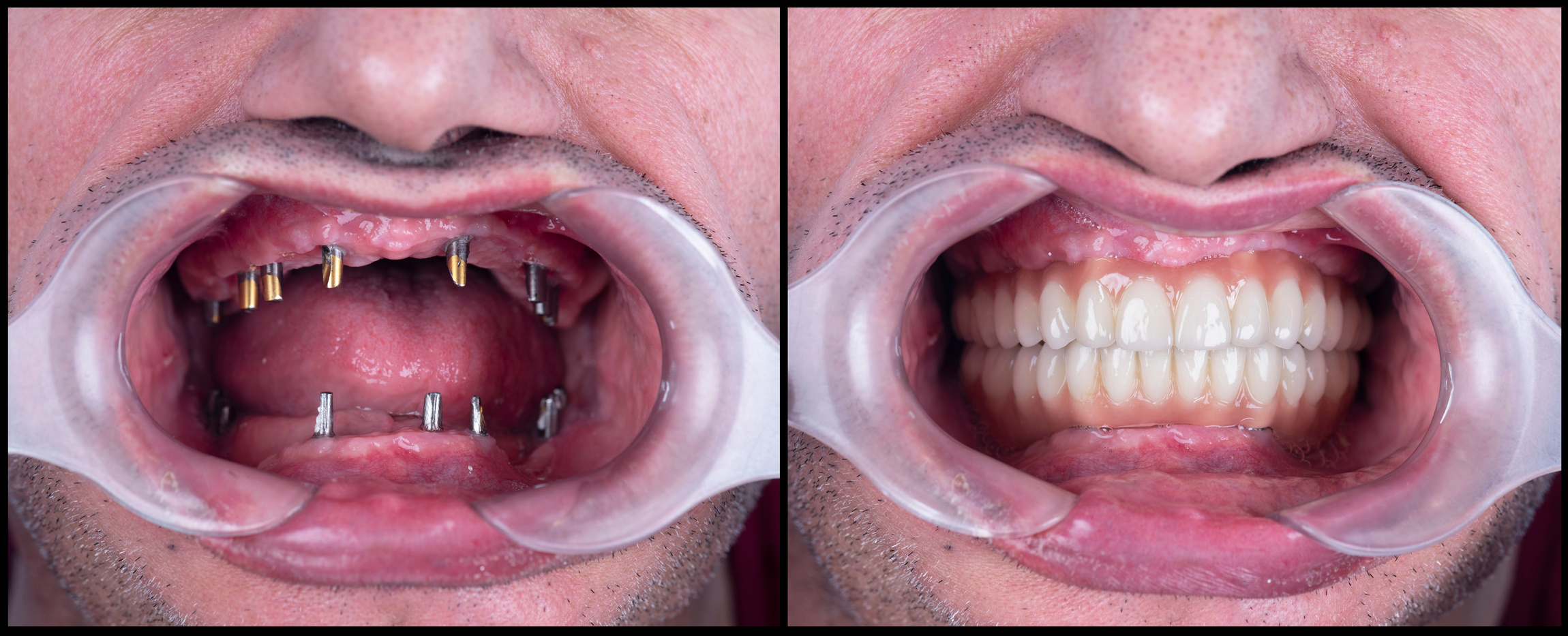Not known Details About Dental Sense
Not known Details About Dental Sense
Blog Article
Dental Sense Things To Know Before You Get This
Table of ContentsThe 7-Minute Rule for Dental SenseRumored Buzz on Dental SenseDental Sense Fundamentals ExplainedDental Sense for Dummies
are clinical tools operatively implanted right into the jaw to bring back a person's capacity to chew or their appearance. They provide assistance for man-made (fake) teeth, such as crowns, bridges, or dentures. When a tooth is shed as a result of injury or illness, a person can experience complications such as fast bone loss, faulty speech, or changes to chewing patterns that lead to discomfort.Oral implant systems include an oral implant body and dental implant abutment and may additionally consist of an abutment addiction screw. Wisdom tooth cavity. The dental implant body is surgically placed in the jawbone in area of the tooth's root. The dental implant joint is typically affixed to the implant body by the joint addiction screw and prolongs via periodontals into the mouth to support the connected fabricated teeth
(https://dentalsense1.wordpress.com/2025/01/11/dental-implants-root-canal-procedures-professional-teeth-whitening/)Framework of The Dental Implant System choosing oral implants, talk with your oral supplier regarding the potential advantages and threats, and whether you are a candidate for the procedure. Things to consider: Your overall health is a vital consider establishing whether you are a great candidate for oral implants, for how long it will require to recover, and how long the dental implant may stay in place.
Smoking cigarettes might affect the recovery process and lower the lasting success of the implant. The recovery process for the dental implant body may take a number of months or longer, during which time you typically have a momentary abutment in area of the tooth. the dental implant treatment: Very carefully comply with the dental hygiene instructions offered to you by your oral supplier.
Things about Dental Sense
Implant failure can lead to the demand for another operation to deal with or replace the implant system. Brings back the capacity to eat Restores cosmetic appearance Assists keep the jawbone from shrinking due to bone loss Preserves the health and wellness of the bordering bone and gums Assists maintain nearby (neighboring) teeth stable Improves quality of life Damages to bordering natural teeth throughout implant positioning Injury to the surrounding tissues throughout surgery, such as sinus opening Injury during surgical procedure (for instance, fracture of surrounding jawbone) Poor feature, such as feeling like the teeth do not attack together usually A sensation that the tooth is loosened or twisting in place arising from a joint screw loosening Implant body failing (looseness of the dental implant body) because of systemic infection, which might be most likely in clients with unrestrained diabetes because of local infection in bone and gums sustaining the implant body as a result of postponed healing, which might be most likely in patients who smoke Problem cleaning up the periodontals around the dental implant, resulting in poor oral hygiene Untreated gum disease Post-surgical feeling numb due to nerve impingement or damages Always inform healthcare suppliers and imaging technicians that you have oral implants before any magnetic resonance imaging (MRI) or x-ray procedures.
FDA is not knowledgeable about any negative events reported for MRI or x-ray procedures with oral implants. Dental implants systems are usually made of products that adhere to international agreement standards of the International Organization for Standardization (ISO) or ASTM International. These requirements have details of what makes a safe material.

A dental implant is a structure that replaces a missing out on tooth. With screw-like tools, the surgeon inserts a dental implant into the jawbone, and it acts as an anchor for an artificial tooth, called a crown.
The Ultimate Guide To Dental Sense
Some individuals are not qualified for oral implant surgical procedure. It is for dental cosmetic surgeons to operate people with: acute illnessuncontrollable metabolic diseasebone or soft tissue condition or infectionIf these concerns are resolved, an individual can have the surgery. In, dental cosmetic surgeons avoid operating individuals with: If individuals with any one of the above undergo oral implant surgical treatment, there is a higher threat of the dental implant failing.

Oral implant surgical treatment is a tailored procedure. It's not the exact same for everybody. The adhering to gives a general summary of what you can expect your dentist, dental cosmetic surgeon, periodontist or prosthodontist to do: Put the dental implant surgically. Provide you time to heal. Attach the message and final crown, bridge or denture.
Next, your cosmetic surgeon will thoroughly place the oral implant into your jaw. If your implant is near the front of your mouth, your dental practitioner will certainly make a short-term tooth for you to wear till you recover.
Dental Sense - Questions
Your provider can tell you what to expect in your scenario. During the recovery phase, your jawbone must fuse to the dental implant. This procedure, called osseointegration, is vital for security and long-lasting success. This procedure can take anywhere from three to nine months. In some instances, it may take much longer.
Once your dental implant heals, your dental expert can attach the abutment (little connector message) and your last restoration (crown, bridge or denture). This normally takes about one hour to complete and may need a 2nd minor surgical treatment. You should not feel any type of discomfort during your oral implant treatment because your supplier will certainly use medicine to see this numb your gum tissues.
Report this page